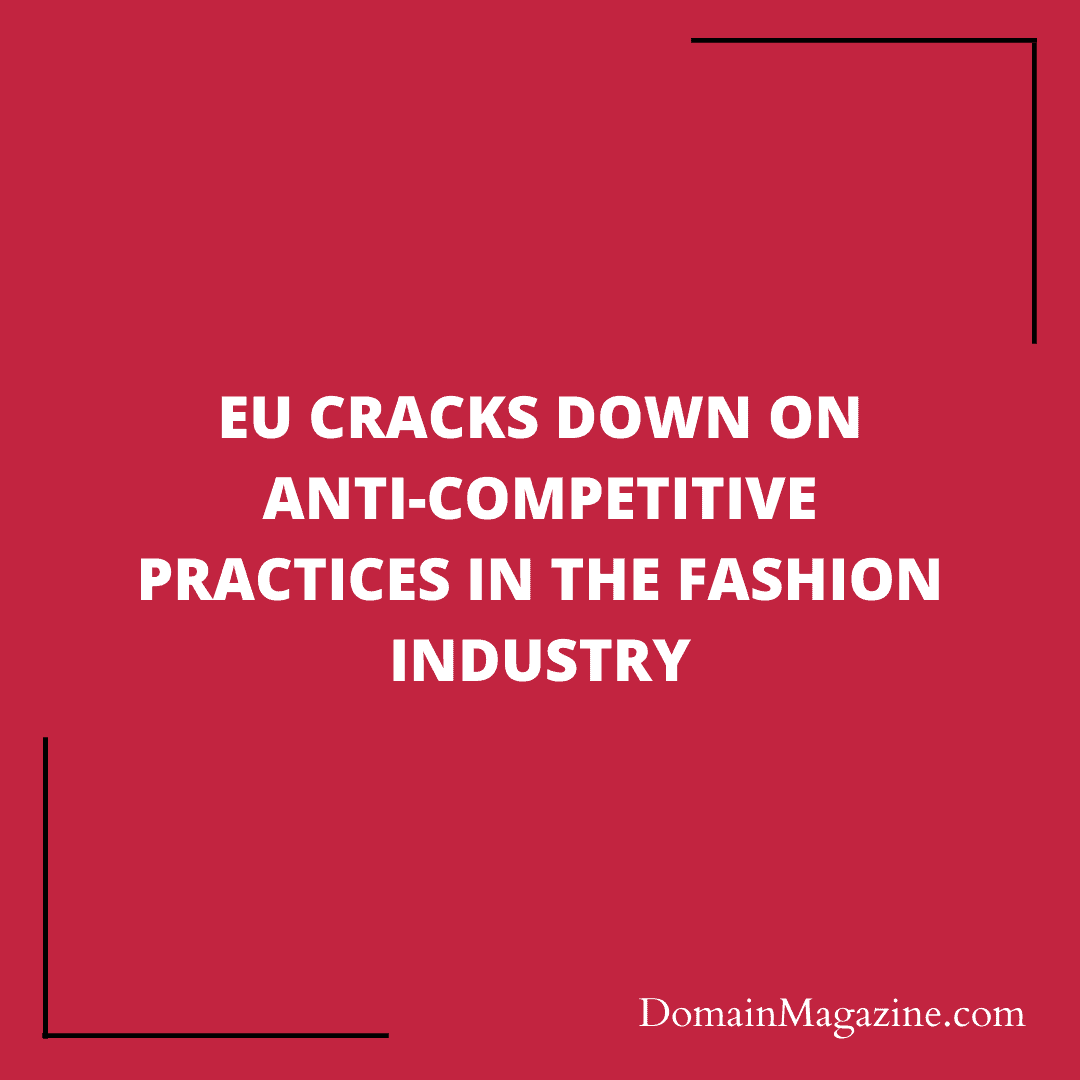Introduction:
The European Union (EU) is taking significant steps to address anti-competitive practices in the fashion industry. In recent years, several fashion brands have faced investigations by the European Commission for imposing restrictions on cross-border sales and customer groups. This article explores the ongoing investigation into Pierre Cardin and Ahlers Group, shedding light on the broader efforts of the EU regulator to ensure fair competition in the fashion and luxury sector.
The Fashion Industry Under Scrutiny:

The European Commission’s increasing focus on the fashion industry signals its commitment to promoting fair competition and sustainable practices. Since 2021, the Commission has targeted various aspects of the fashion sector, including seasonal runway shows, product delivery schedules, and environmentally responsible practices.
The Pierre Cardin and Ahlers Investigation:
The latest investigation centers around French fashion brand Pierre Cardin and its largest licensee, Ahlers Group. The Commission’s preliminary view suggests that the two companies may have violated EU antitrust rules by restricting cross-border sales of Pierre Cardin-licensed clothing and limiting sales to specific customer groups. Such practices are deemed anti-competitive and prohibited under Article 101 of the TFEU and Article 53 of the EEA Agreement.
The Power of the European Commission:
The European Commission holds significant authority to enforce EU competition law. In the event of wrongdoing, it can impose fines of up to 10 percent of the entity’s turnover in the last financial year, making it essential for companies to comply with fair competition regulations.
The Broader Impact of the Investigation:
Cartel investigations often have far-reaching consequences across the industry. The ongoing probe into Pierre Cardin and Ahlers should serve as a warning for other fashion brands, as parallel antitrust investigations could be opened in the United Kingdom, the U.S., and other jurisdictions. The industry’s prior history of facing regulatory authorities for various issues also adds to the importance of staying compliant with competition laws.
Past Antitrust Actions in the Fashion Industry:

The fashion industry has witnessed previous antitrust actions based on similar grounds. French skincare brand Caudalie faced scrutiny for imposing minimum resale prices and limiting online sales to other EU member states. Nike and Guess were also fined for restricting cross-border sales within the EEA.
Emphasizing Fair Competition:
The European Commission’s investigation into the fashion industry underscores its dedication to promoting fair competition and preventing practices that hinder trade between EU member states and distort competition within the internal market. By curbing anti-competitive practices, the Commission aims to foster a level playing field for all players in the fashion and luxury sector.
Conclusion:
The EU’s ongoing crackdown on anti-competitive practices in the fashion industry serves as a reminder to companies of the importance of adhering to fair competition regulations. As the investigation into Pierre Cardin and Ahlers continues, fashion brands should remain vigilant about potential antitrust actions in various jurisdictions. By fostering a competitive and sustainable fashion industry, the European Commission aims to create a more transparent and consumer-friendly market for all.


Join the Discussion